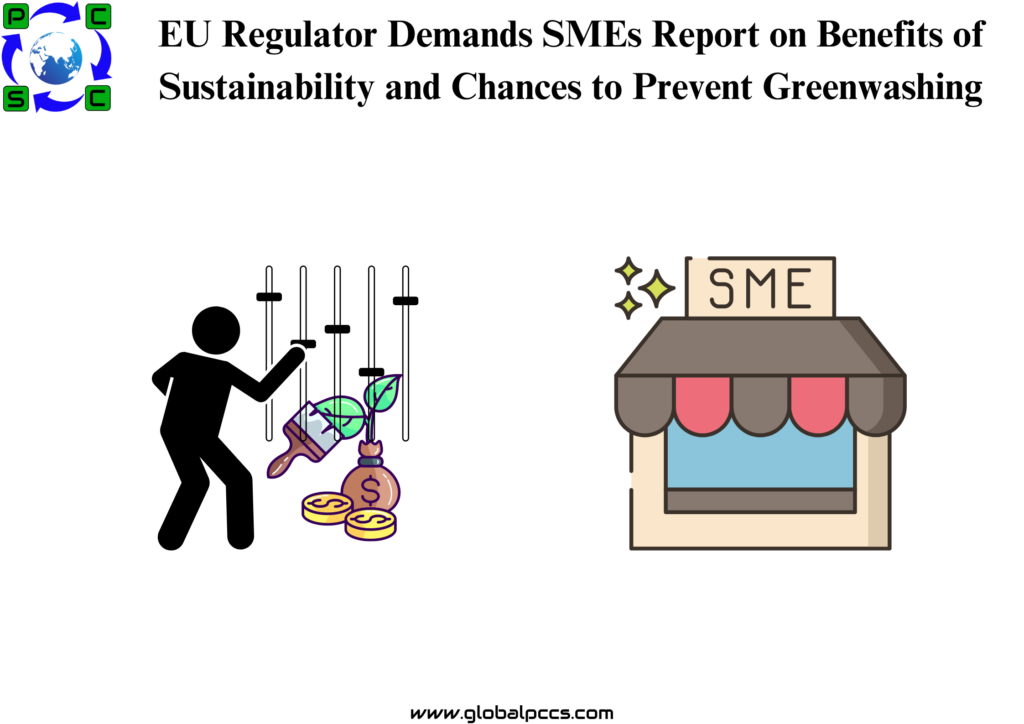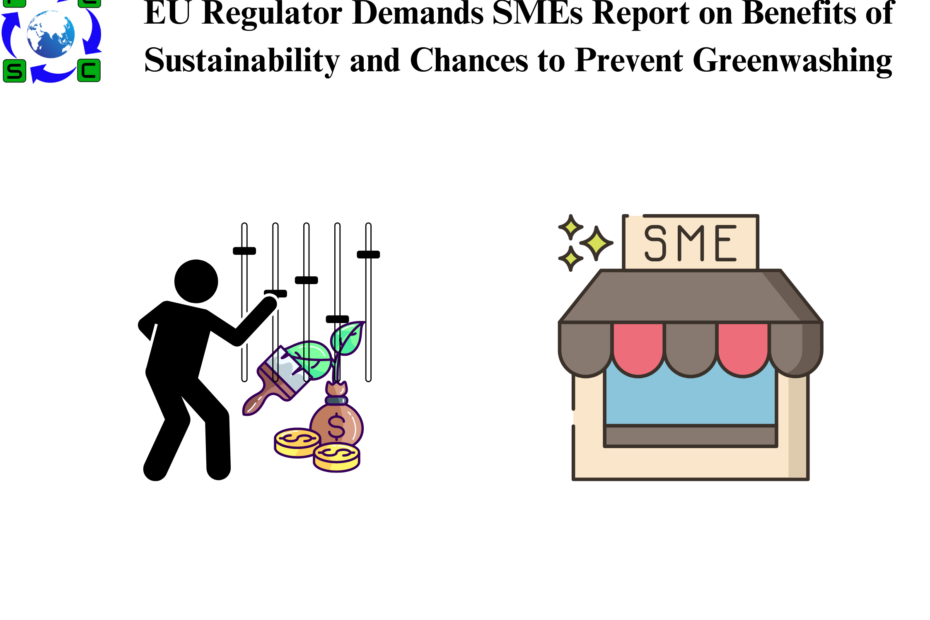 The European Securities and Markets Authority (ESMA), the EU markets regulator, has released recommendations to modify the sustainability reporting requirements that have been proposed for market-listed small and medium-sized (SME) businesses. One of the proposals is to require SMEs to report on opportunities and positive impacts related to sustainability in order to mitigate the risk of greenwashing.
The European Securities and Markets Authority (ESMA), the EU markets regulator, has released recommendations to modify the sustainability reporting requirements that have been proposed for market-listed small and medium-sized (SME) businesses. One of the proposals is to require SMEs to report on opportunities and positive impacts related to sustainability in order to mitigate the risk of greenwashing.
Under the EU’s Corporate Sustainability Reporting Directive (CSRD), ESMA responded to a consultation held by the European Financial Reporting Advisory Group (EFRAG) about its proposed European Sustainability Reporting Standards (ESRS) for small and medium-sized businesses. The recommendations are included in this response.
The CSRD will go into effect for listed SMEs in 2026 and will begin to apply to major public-interest firms with over 500 workers at the beginning of 2024. firms with over 250 employees or over €40 million in sales will be the next group to fall under this category in 2025.
In June 2020, the European Commission authorized EFRAG, a private group that receives most of its funding from the EU, to get ready for new sustainability reporting requirements for the EU, particularly those for SMEs that are public-interest firms or those whose securities are traded locally. There was also a request for the organization to provide rules for non-listed SMEs to report on sustainability voluntarily. Public comments on the standards were opened in January 2024 after EFRAG published its exposure drafts for the new SME ESRS, which included requirements for both SMEs in the public interest (ESRS LSME) and SMEs that are part of the voluntary standards framework (VSME).
When establishing sustainability reporting requirements for smaller businesses, ESMA recognized that EFRAG needed to “strike a difficult balance” between addressing proportionality concerns and the need to give investors transparent and reliable information. Subject to certain adjustments suggested by ESMA, the regulator stated that the proposed requirements “adequately strike the balance between proportionality and investor protection considerations”.
One of the primary changes that ESMA is proposing concerns the reporting requirements that SMEs have for sustainability-related opportunities and positive impacts. The regulator has noted that, although all entities must report on risks and adverse impacts, larger entities are required to disclose opportunities to a greater extent, and SMEs are only required to report on adverse impacts when it comes to their impact.
Since reporting on possibilities and positive impacts would take place outside of the CSRD framework and without the assurance protections provided by the sustainability reporting regulations, one of the main issues with this method raised by ESMA is the potential for greenwashing.
ESMA recommended a compromise approach for the ESRS for SMEs, such as a requirement for “a concise depiction of material positive impacts in the materiality assessment” and opportunities disclosure at an aggregate level, while allowing for more detailed information on a voluntary basis, in order to address these risks while meeting the need for proportionality.








 Authorised IMDS & CDX Training & Consulting partner for
Authorised IMDS & CDX Training & Consulting partner for






